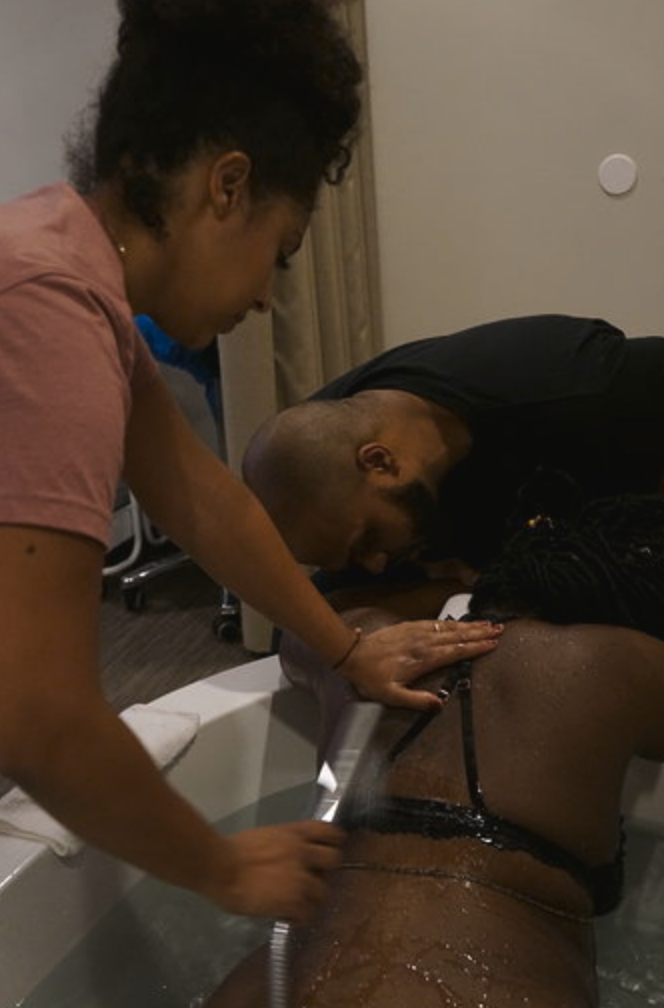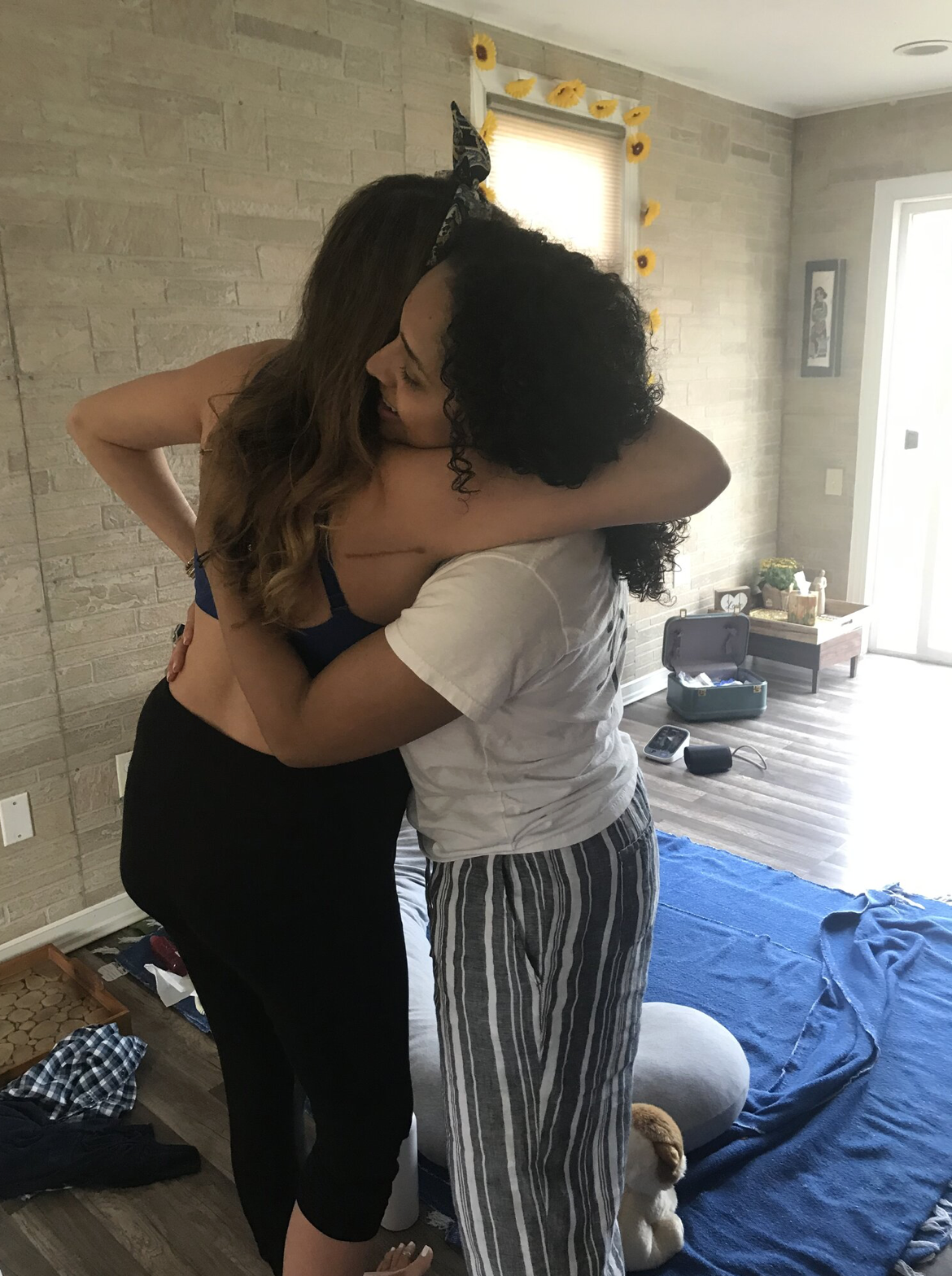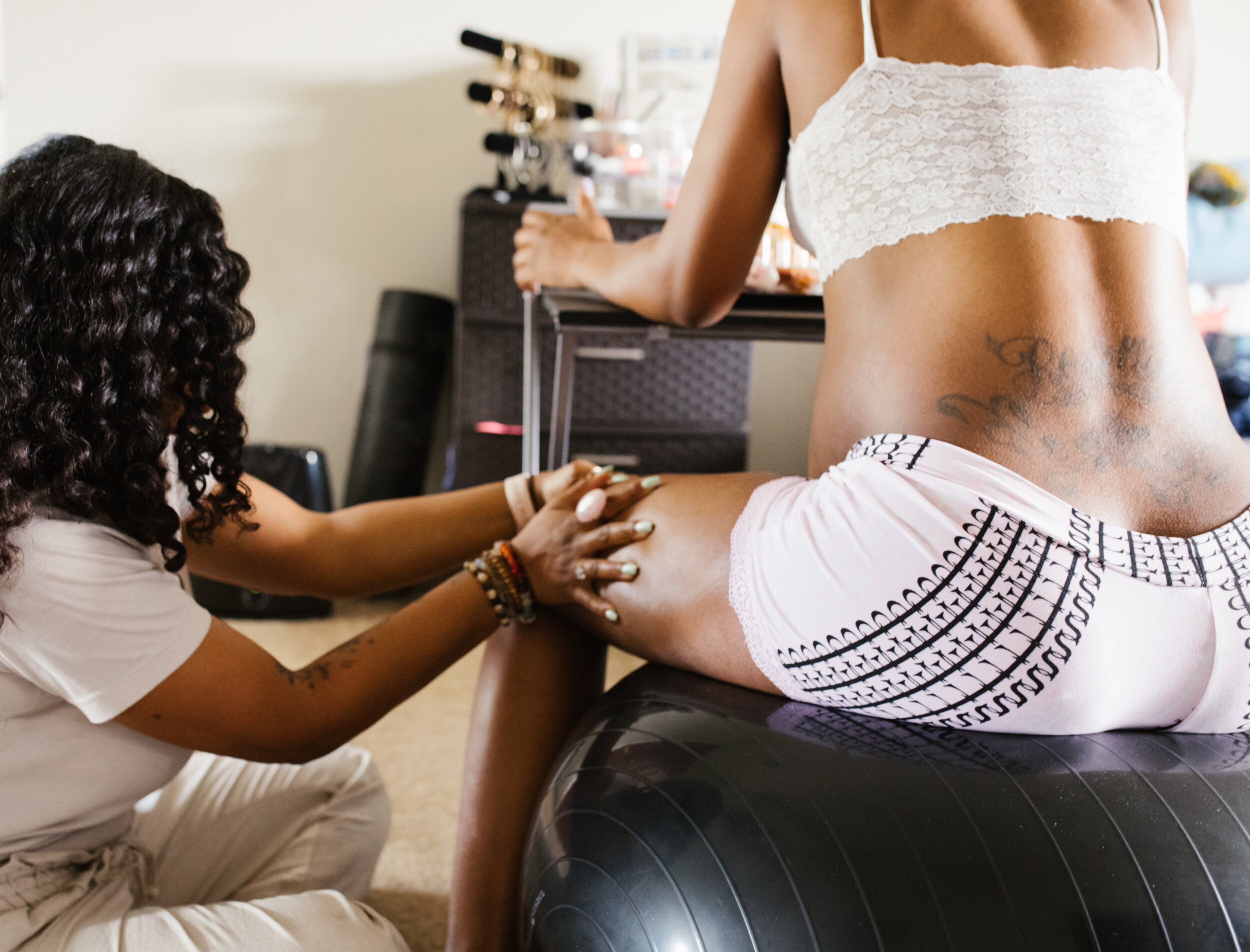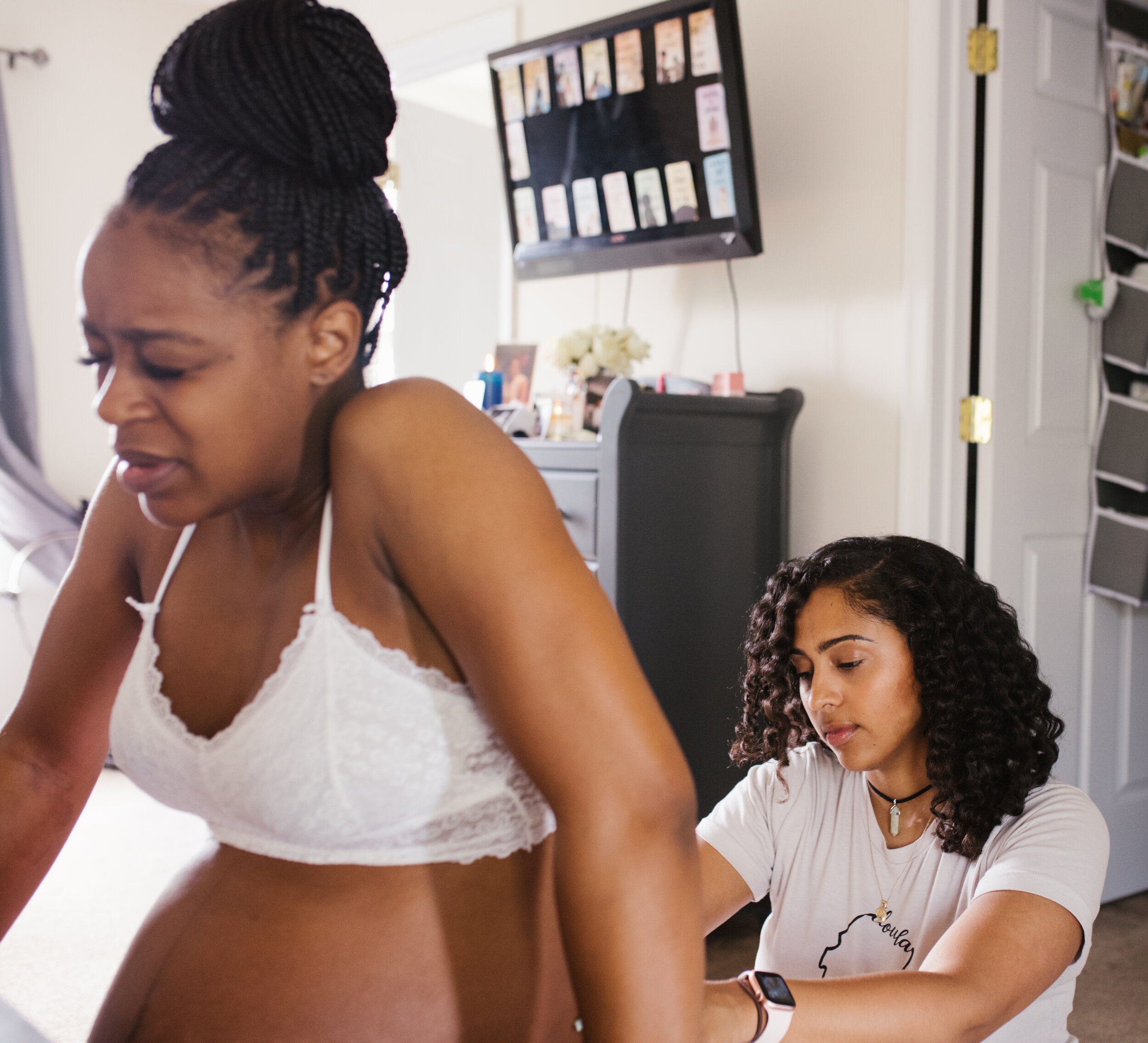Dou.la (ˈdo͞olə/)
a person professionally trained to provide emotional, physical and educational support to a birthing person and their family before, during, and after childbirth.
Aimee as your Doula
As a doula, and a womxn, I am full of love- incredible, sensational, riveting, whole-hearted, non-judgmental, nurturing, supportive love. I will give you all the levels of comfort, spoiling, and support; tools for strength, self advocacy and self healing, in the unique ways that you need. I will get to know you, as much as you will let me, and that will help me, help you, have the best chance at the empowered birth you desire, and equally importantly, the healthiest start to your very own version of motherhood.
My Social Work background helps me help you be a fierce advocate for yourself. My photography/videography skills will give you some amazing imagery to hold dear for lifetimes to come, if you so desire. Choosing me as your doula, will give you layers benefits. Meet with me to find out more :)
(Consultations are always free of charge!)
Why Do I Need a Doula?
There are many reasons why more birthing people are choosing to have a doula. For one, since the majority of births in the US take place at a hospital, institutional routines create a high intervention environment with bright lights, needles, lack of privacy, strangers walking in and out, amongst other interruptions.
This can be difficult for one to deal with, even when feeling our best. Can you imagine trying to advocate for yourself being in the vulnerable state of labor and delivery? These conditions are very likely to decrease progression in labor and deplete self confidence. Having a birth doula present providing continuous support in the way that the specific family needs, the mother’s self esteem is much more likely to be kept in tact.
Another reason why doulas are effective in a birth space has a lot to do with the attachment between a birthing person and a doula which can increase natural levels of oxytocin. Oxytocin is known to increase labor contractions, decrease stress, fear, and anxiety. The calming effect of a doula’s presence increases the mother’s own pain coping hormones(beta-endorphins), making labor feel less painful (Ulnas Moberg, 2014).
Studies conclude that doula support has a clinically meaningful impact on anxiety and pain levels in birthing people.
I’m a Science Person, Show me the Statistics
As per Evidence Based Birth,
Doulas provide evidence based education to the family.
31% decrease in the risk of being dissatisfied with the birth experience with continuous support by a doula
Shorter labors by 41 minutes on average
10% decreased in the use of medication for pain relief
25% decrease in the chance of unnecessary Cesarean
8% increase in chances to have a spontaneous vaginal birth
What do you mean ‘Physical Support’?
Providing physical support is imperative to a laboring person. This includes but is not limited to:
Applying hot/cold therapy (compress/towel/fan/heating pad)
Soothing touch
Massage, counter pressure
Stretching techniques, positioning assistance, use of exercise ball
Assistance with water therapy (shower/tub)
Creating peaceful environment to client’s liking. This can include dim lighting, candles, salt lamp, drawn curtains, soothing music and aromas (depending on birthing space regulations) flowers, small plants.. the list goes on! It varies case by case.
What about ‘Emotional Support’?
Emotional support is just as important as the physical; they go hand in hand. It helps the birthing person feel loved an nurtured, resulting in a sense of peace, pride, and empowerment once the baby is born.
Praise,encouragement, affirmations, reassurance
Continuous presence, keeping company
Helping the birthing person and family perceive themselves or their situation in a positive light
Accepting the desires of the birthing person
Assist in diminishing fears and self-doubt for both the birthing person & birth partner
Will A Doula Take The Place of My Partner?
Absolutely not. While your doula has a huge role on the big day, the birth partner is an essential support person to the birthing person. They know you and how to love you best. Ideally, the partner and the doula will work together to make the birth experience as smooth, safe, and sacred as possible. However, the partner is also experiencing an emotional journey, and will need support, which is where the doula comes in for them as well. While your partner teaches the doula about you, the doula will teach the partner about birth.
Furthermore, most birth partners have limited knowledge about medical procedures, birth, and/or sometimes, they’re unsure about what is going on emotionally with the birthing person. Doulas are trained professionals; therefore they usually deal better with situations that could be overwhelming for the partner. I’ve found it best to let the partner enjoy the experience along with the mother, rather than try and play both roles.
Also, if for whatever reason the partner has to leave the birth space, neither of you will ever worry about you being alone. If you want to be held and connect with your partner while also getting a message to relieve pressure, you won’t have to choose. You can have both. If you’re feeling incredibly attached to your partner, but you need water or ice chips or whatever else, your doula can do that while your partner stays by your side nonstop and vice versa.
With that being said, no two families are alike. I fill the need of each individual family. If it is the desire of the birthing person, my goal is to use the birth experience to help the family connect and become closer.
What if I want a Doula, but my partner is not on board yet?
This is more common than you may think. Many partners do not feel comfortable with the idea of having an extra person in the room that they have not yet met. They may not understand the value of having an experienced birth professional to help their birthing partners in ways that they may not know how. For this reason, I always suggest that the partner attend our initial meeting (which is free of charge/no obligation), so they can have all of their questions/concerns heard and addressed.
It is ideal for the couple to feel 100% comfortable with the doula they are choosing for the best birth outcome. I usually win the partners over at our first meeting, and I have yet to hear, “ Gee, I wish we didn’t have a doula at our birth, it would’ve helped to be alone.” Please do not hesitate to include your partners on this birth team choosing process!
What if I want a medicated birth? Will a Doula still be beneficial for me?
Absolutely!! Doulas are meant to support you whatever way you choose to birth. I can assist you with different safe positions to assist with baby’s descend more rapidly. I can still grab whatever you need for you (water, chapstick, ice chips ect.) I can also set a soothing tone in your birth space with soft music, aromatherapy, dim lighting, and whatever else you may desire (as long as the birth space allows). Not only informational support but also loads of emotional support and catering during this vulnerable time.
What if I end up with a Cesarean Section or if I elect a scheduled Cesarean Section?
A doula is still essential in these situations. From early labor to postpartum, a doula will support in different ways. If the hospital allows a doula in the OR, I will absolutely be there the entire time. If this is especially imperative to you, I can help you find a doctor that supports having doulas in the OR.
If you are electing a scheduled C-Section, I can customize a package for you with additional prenatal and postpartum visits, as well as emotional, informational, and some physical support pre-ooperatavly.
What is the difference between a Doula vs. a Midwife?
A Midwife attends birth as a medical professional; they are supportive, but their main role is to monitor the birthing person + the baby’s health during the prenatal period, birth and usually at least one postpartum care visit. The Midwife is also often the one catching the baby. A Doula is not trained to provide any clinical support such as cervical checks, blood pressure/heart rate monitoring, or baby catching. The Doula’s main role is to provide high levels of full support to the birthing person and their birth team.




